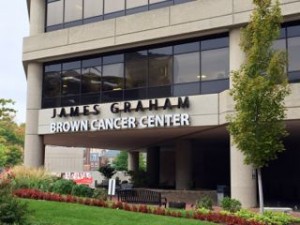Kudos to my colleagues at University Hospital.
 I recently wrote about the disappointing representation of Kentucky’s hospitals in this year’s 2015 version of US News & World Reports list of Best Hospitals. Of Kentucky’s approximately 130 acute-care hospitals for adults, not a single one achieved national ranking in any of 16 different specialties. Nine Kentucky Hospitals were designated as a “Best Regional Hospital” by having one or more of 16 specialty services considered “high-performing” as defined by scoring in the top quarter of all eligible hospitals for that specialty nationally.
I recently wrote about the disappointing representation of Kentucky’s hospitals in this year’s 2015 version of US News & World Reports list of Best Hospitals. Of Kentucky’s approximately 130 acute-care hospitals for adults, not a single one achieved national ranking in any of 16 different specialties. Nine Kentucky Hospitals were designated as a “Best Regional Hospital” by having one or more of 16 specialty services considered “high-performing” as defined by scoring in the top quarter of all eligible hospitals for that specialty nationally.
I went on to discuss what are in my opinion some of the difficulties and shortcomings of current attempts to rank hospitals for quality and safety. I reinforced US News’s stated intent that their program was designed to identify hospitals best suited for the most difficult cases where the services of large, high-volume teaching hospitals with abundant in-house technology might make a difference. Hospitals not on their lists may still provide high quality routine care. With a focus on cardiology and cardiac surgery, I also discussed how the mix of data elements examined can boost or diminish a given hospitals standing [and perhaps even add fuel to the current technology arms-race among hospitals]. Continue reading “University of Louisville Hospital Designated as Best Regional Hospital for Cancer in Louisville.”
